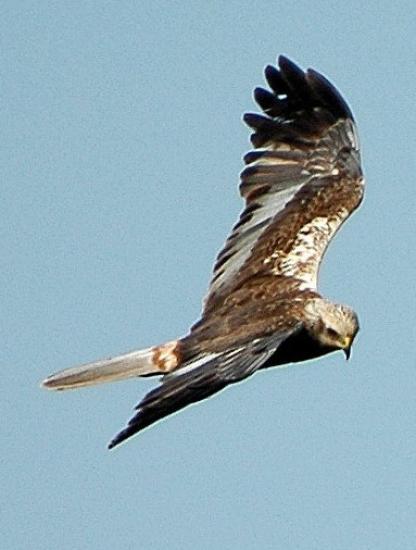
This site uses cookies, by continuing to use this site you accept the terms of our privacy policy
Feed 2.0 Loading...
SNH Announce New Licence Measures To Reduce Wildlife Crime
6th October 2014

Scottish Natural Heritage (SNH) will prevent the use of general licences to trap or shoot wild birds on land where there is evidence of wildlife crime against birds.
Decisions will be made on the basis of strong evidence provided by Police Scotland, and will be based on a civil standard of proof, rather than the criminal standard of proof.
It comes after Scotland's Minister for the Environment and Climate Change, Paul Wheelhouse, asked SNH to consider how general licences could be restricted, as part of a number of measures aimed at reducing raptor persecution.
General licences allow landowners or land managers to carry out actions which would otherwise be illegal, including controlling certain types of birds for conservation purposes or to protect crops or livestock. These new measures mean that where SNH has evidence that indicates that wildlife crime has been committed on an area of land then the use of these licences can be restricted on that area of land. The measures - which have been developed in consultation with Police Scotland and others - will be backdated so that action will be taken where there is evidence of wrong-doing since January 1, 2014.
The new measure complements other recent actions to reduce wildlife crime, including vicarious liability for offences against wild birds, which was introduced in 2011, and the review of penalties for wildlife crime offences that is currently underway.
Restrictions will prevent people from using the general licences on the land in question for three years. This period will increase if more evidence of offences comes to light.
Minister for the Environment and Climate Change Paul Wheelhouse said:"The illegal persecution of raptors is totally unacceptable and barbaric given typically it is associated with great suffering on the part of the birds when they are illegally killed. It is also, quite rightly, roundly condemned by all responsible land managers and those in the conservation community. I am both angry and very frustrated that a criminal minority continues to kill and persecute these magnificent birds for their own selfish ends.
"It is too often the case that there is clear evidence that a crime has been committed, but the perpetrator is able to hide behind a wall of silence among those who really should be cooperating with the police. That is why I asked SNH to consider how better use can be made of general licenses, which, rather than a ‘right' are a privilege that can and should be withdrawn where there is evidence of illegal activity taking place. I am confident these new measures will be a powerful new weapon in our armory in the fight against those perpetrating raptor persecution in Scotland and hopefully will deter those who might be tempted to commit such a selfish criminal act that stains Scotland's reputation and potentially damage the rural economy."
Ian Ross, SNH's chairman, said:"We're committed to taking action whenever there is evidence of wildlife crime, and we believe this new measure will make it much tougher for those committing offences. Because of the remote locations where most wildlife crime takes place, it's often difficult to prove. So we need every tool we can to fight against those who persecute raptors in Scotland.
"Nature-based tourism is worth £1.4 billion a year to Scotland's economy. Raptor persecution detracts from that value and diminishes Scotland's appeal as a major wildlife tourism destination. It can also damage the local economy as many locals and visitors are keen to see these magnificent birds in the wider countryside. And of course it causes an appalling level of natural heritage and wildlife damage.
"We’re committed to working strongly in partnership with Police Scotland, and other members of the Partnership for Action against Wildlife crime Scotland (PAWS) to stamp out wildlife crime in Scotland."
General Licences - The Wildlife and Countryside Act 1981 protects all wild birds. General licences permit authorised persons to carry out actions that would otherwise be illegal. They cover certain types of activity relating to birds, such as preventing damage to crops or livestock, preserving public health or air safety, and preventing the spread of disease. General licences cover situations which are regarded as relatively commonplace and where there is unlikely to be any great conservation impact. General licences avoid the need for people to apply for individual licences for these specific circumstances. General licences are subject to strict conditions, and abuse of them or failure to comply with the conditions could constitute an offence. For more information, see http://www.snh.gov.uk/protecting-scotlands-nature/species-licensing/bird-licensing/
PHOTO
Marsh Harrier - Photographer Nigel Fairney
From the Caithness Biodiversity Photo Collection -
http://www.caithness.org/nature/birdwatching/photogallery/index.php?gallery=4&start=24


